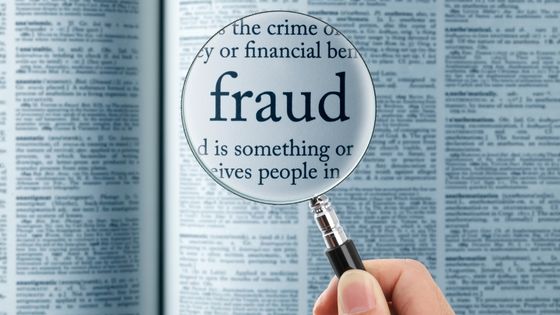Making and managing money puts firms in a vulnerable position, open to fraud. The prevalence of fraud in today’s corporate world is alarming. Therefore, if you run a company, no matter how big or little, you need to know and comprehend the risks associated with the fraud. Taking measures to avoid and identify fraudulent activity is essential for limiting this loss. Because avoiding fraud is considerably simpler than recovering, every business needs a strategy to deal with the threat. It would help if you also educated yourself on effective strategies for mitigating the likelihood of fraud occurring at your company.
Get To Know Your Employees
While it’s everyone’s intention only to recruit trustworthy workers, a proper hiring process may reduce the likelihood of fraud occurring in the first place. It would be best if you did background checks on all employees with access to clients’ cash or banking information. In addition, you should also monitor an employee’s situation closely, as the employee’s involvement with money increases. Insider fraud affects not just entry- and mid-level workers but even directors. Therefore, by conducting background checks, you eliminate the risk of employing dishonest persons in your organization. It is also helpful to have a policy that outlines what defines unethical behavior and how the organization will deal with workers that engage in it.
Take Precautions To Prevent Credit Card Fraud
Some consumers may have become desensitized to credit card theft reports because of how often it appears in the media. However, even the tiniest home-based enterprises should begin by keeping company and personal finances completely separate. Combining business and personal credit card spending is risky because it increases the likelihood of making a mistake that costs money and increases the risk of losing money in both categories if the account is compromised. Additionally, it would help if you were mindful of whom you provide your credit card information and use secure services while paying bills online to avoid the risk of check fraud or theft. Furthermore, you can protect your network and data from intruders with the help of password managers, VPN routers, and identity management systems.
Maintain internal controls
Internal controls that may prevent or identify fraud are essential for firms of any size to implement and keep up to date. Financial account data, inventory access, expenditure reimbursements, overtime, check writing, and other accounting or payroll processes should all be confidential. You can also use forensic handwriting analysis to identify counterfeit papers or signatures. If you don’t have an internal control procedure or employee fraud prevention program, you should engage a specialist with expertise in this field. An expert will review current business practices, provide recommendations for new or revised initiatives, and support your company throughout the implementation process.
Educate Your Staff on Methods For Detecting and Avoiding Fraud
Your company’s ability to detect and prevent fraud and report suspicious activity directly correlates with the training you provide your staff. Your workers often serve as your company’s first line of defense against fraud, giving you a fantastic chance to detect fraud. Therefore, you should hold regular meetings to train your employees on how to spot fraud and measures you can take to protect your company. You may avoid your worst fear from becoming a reality by watching out for warning signs and being prepared as a company to handle a fraud or data breach. If your firm decides to hire more people, you should have these meetings as frequently as you feel necessary to ensure that everyone who works there is aware of the policies.
Review Receipts and Expenses
Establishing clear protocols for approving invoices and expenditures and thinking about whom you should permit to place orders and make payments risk for your firm. When you get an invoice, review the price information to ensure that you purchased and got the products and that the charges are not fraudulent. You must thoroughly understand your company and be well versed in daily operations to detect discrepancies.
When it comes to businesses, fraud can take many forms. You risk losing money, losing credibility, and losing the trust of your customers if this happens to your business. The first step in protecting your hard work is learning to recognize the indications of fraud and taking preventative measures. Effective fraud detection and prevention strategies can lower the overall recurrence of fraud.













